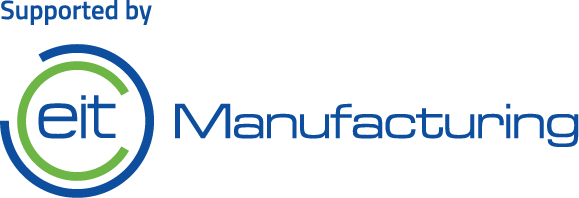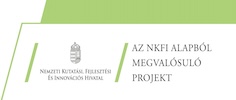In this ‘behind the scenes’ interview, we talk with the Acting Head of the EIT’s HEI Initiative Dr Emma Harris and Programme Coordinator Rosanna West about the challenges and achievements of the initiative, as well as what the community can expect in the coming months.
Could you present yourself to our readers?
EIT HEI Initiative Acting Head Emma Harris (right) and Programme Coordinator Rosanna West (left)
Emma Harris: I have been the EIT HEI Initiative manager since early 2021 and Acting Head of the EIT HEI Initiative since December 2021. My role involves managing the administration and coordination of the initiative. I’m responsible for leading the project management team, creating and managing processes and activities, and working with a range of stakeholders to develop and maintain the goals of the EIT HEI Initiative.
Rosanna West: I have been the EIT HEI Initiative Programme Coordinator since January 2022. My position is focused on looking after the projects and the team of Project Officers working across the different EIT Knowledge and Innovation Communities (KICs). In addition, I provide coordination support to the initiative’s eight work packages.
I have a more hands-on role with the projects. It’s my job to know what they have got going on when it comes to activities, events, collaborations, etc., and to offer any support needed from the coordination team. As the communications lead for the initiative, I am also responsible for highlighting the great work and impact of the projects across both our internal and external communications. Our goal is not only to boost engagement with the wider community but also to inspire future applications to the Initiative.
How is the pilot phase going so far on the initiative and project level?
Emma: Overall, the pilot is going very well. We learned a lot from the Pilot Call in 2021. We refined the eligibility criteria, extended the call process (submission and evaluation times), and expanded our communication.
With regards to the impact of the initiative, we are seeing creative and original approaches to innovation and entrepreneurial capacity building in higher education. In particular, the link between higher education institutions (HEIs) and industry, research, and public bodies has led to enhanced ecosystems in which HEIs act as hubs. Because of this, HEIs are becoming more empowered to create systematic impact and drive innovation in their regions.
Rosanna: At the project level, it’s going great so far! Pilot Call projects have been active for almost a year now, and we can already see lots of interesting developments taking place, not just within the project consortia but also in the wider ecosystem they work in. While it is still early on in terms of the timeframe (proposals outlined a vision up to 2030), it’s fantastic to see projects already going above and beyond what they initially set out to do. A large number of projects actually exceeded their targets for training people and supporting start-ups by the end of 2021, so they are on track to continue surpassing expectations. This shows the commitment and enthusiasm of our projects to achieve real institutional change. We have also seen a few instances of projects teaming up for certain activities, which shows us the community is really forming.
What were the main challenges for the team in the beginning?
Emma: Time was the main challenge − developing lots of new processes in short time spans. We overcame this through creativity, teamwork, and a shared commitment to the overall goal of the initiative and its success.
Another major challenge came from the fact that the initiative involves all eight EIT KICs, which are separate legal entities. Each KIC has a different way of working, their own internal requirements, challenges and structures. However, we have formed an engaged team of Project Officers and project management members across the KICs through open communication and knowledge sharing.
Can you tell us a bit more about the projects that are currently funded?
Rosanna: One of the exciting things about the initiative is that the projects currently funded are focused on a diverse range of subject areas, from big data in environmental sciences, to smart manufacturing, to food security. All projects have delivered innovation-centred trainings and mentoring programmes to a significant number of HEI students and staff. These are often delivered by experienced industry partners and supporting start-ups. Additionally, many projects have either held or participated in hybrid events that promote the work they are doing and helped to foster deeper integration into the wider innovation ecosystem.
As Emma pointed out earlier, we have also seen some cases of projects teaming up to deliver joint activities and finding synergies. These collaborations strengthen the HEI network and widen the scope of the initiative’s impact. For example, the TANDEM+ and EUAcceL projects have got together to create Start for Future, one of the fastest-growing open alliances of academia, start-ups, industry and public organisations. This alliance serves as an open entrepreneurship hub driving systemic innovation internationally.
Why should HEIs get involved in the EIT HEI Initiative?
Emma: Participating consortia join a knowledge network that is dedicated to education and innovation. This leverages the innovation and entrepreneurial knowledge base built into the EIT KICs thus far. Furthermore, the initiative application process is based on an exploration of the HEIs’ strengths and weaknesses as identified in their HEInnovate self-assessment.
In addition, we help HEIs to enhance and develop their projects and approaches through a community of practice that includes all funded HEIs and industry or other partners. This is supported by our Resource Hub, which is a platform that allows KICs and projects to share best practises on training and other educational activities. There are also a number of events, such as the kick-off workshop, the KIC Showcase and Co-Creation Sessions, during which projects can form connections and learn from each other, from the KICs and from external experts.
Any upcoming developments that the community should be excited about?
Rosanna: The EIT HEI Call 2 projects will be launched in Barcelona at the kick-off event in July 2022. During this event, the cohorts from both calls (the Pilot Call and EIT HEI Call 2) will have the chance to meet and network while further developing their project plans. It will be a two-day event featuring interesting speakers, world café activities, and examples of creative methodologies already being implemented.
The EIT HEI Initiative projects will then be involved and highlighted in the EIT event series INNOVEIT. In September 2022, EIT RawMaterials will be organising one of these events in Stockholm, which will be titled ‘Innovation in higher education: A vision for the future’. Each KIC will deliver a cross-KIC event as part of the INNOVEIT series.



